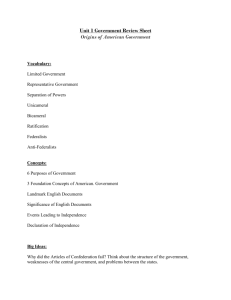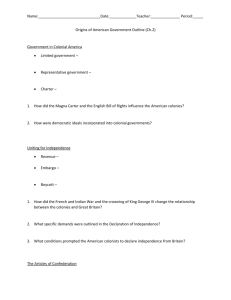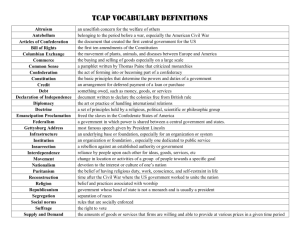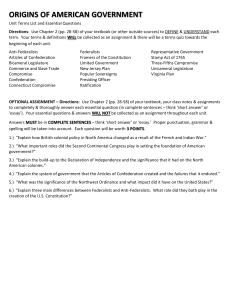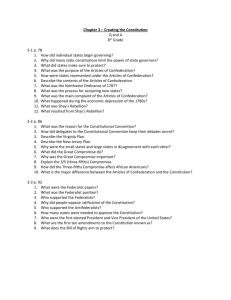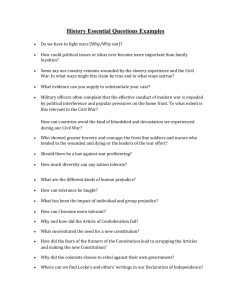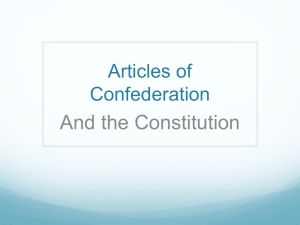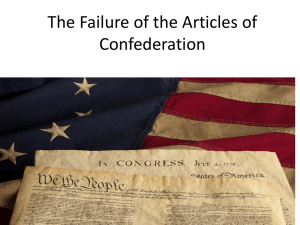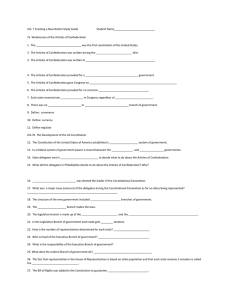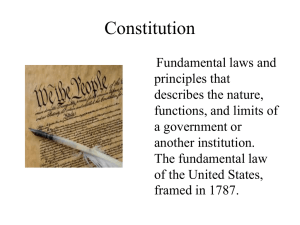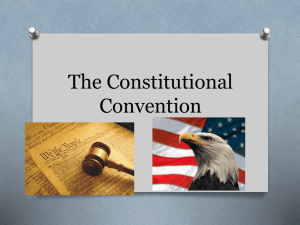Chapter 3 Lesson 12
advertisement
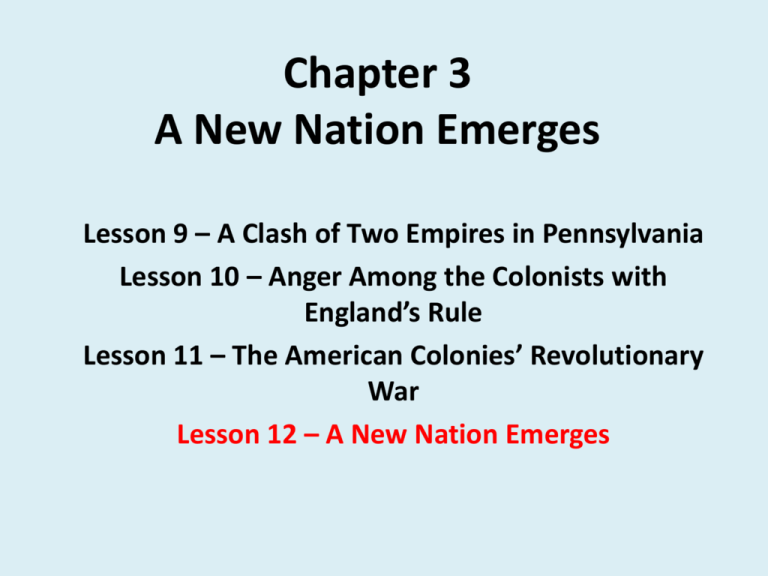
Chapter 3 A New Nation Emerges Lesson 9 – A Clash of Two Empires in Pennsylvania Lesson 10 – Anger Among the Colonists with England’s Rule Lesson 11 – The American Colonies’ Revolutionary War Lesson 12 – A New Nation Emerges • Lesson 12 – Formation of a New Government • 1. What was the first plan of government for the United States? • 2. Why was this first plan unsuccessful? • 3. What role did Pennsylvania play in forming the Constitution of the United States? Lesson 12 – Formation of a New Government • American Revolution fought to get away from a King/Queen • Articles of Confederation – written by American leaders during Revolution. – Very weak document – States were like independent countries – 13 articles describing duties of government – Confederation – means a group of states united for a common purpose • Amerigo Vespucci – explored the coast of South America – Name America was given to the land because of his travels – When a continent was found to the north, the terms north and south were added • • • • • • Major Weaknesses of the Articles of Confederation No Central Government No power to make people to go to war No way to make people obey the law No way to levy or collect taxes No mechanism for solving arguments among the states No way to regulate trade among states • May 1787, delegates from twelve states met in Philadelphia with the purpose of strengthening the Articles of Confederation – Meeting to strengthen the Articles of Confederation – George Washington was elected president of the convention – Realized a new plan of government needed to be written – 55 delegates met, 8 from Pennsylvania • Gouverneur Morris and Ben Franklin • Summer of 1787, secret meeting – Stench from open sewers and animal tanning factory in the air – Mosquitoes and flies were terrible – Windows had no screens – Men wore wool clothing – Windows kept closed Benjamin Rush • One of the founding fathers – Doctor – Signer of Dec. of Independence – Yellow Fever Virus • Helped save Philadelphia during the epidemic • James Madison, Virginia, is given credit as being the Father of the U.S. Constitution • Major disagreements over how each state was to be fairly represented in the new government • Compromise – Smaller states were worried about not getting equal representation, larger states were worried that their vote would be equal to smaller states • Roger Sherman – The Great Compromise – Representation by population (House of Rep.) – Equal representation (Senate) – Ben Franklin – the Great Pacifier • Calmed many tempers during convention • Oldest signer of Constitution although he did not agree with all parts of it • 39 of 55 delegates approved Constitution • States needed to approve/RATIFY plan in order for it to be legal – 9 of the 13 had to approve – Promise to write a list of rights and freedoms was needed to get states to ratify – Interpretation, Compromise, and Change • Amendments were the methods to allow these to happen • Sept. 1790 – first ten amendments were proposed – BILL OF RIGHTS - 1791
